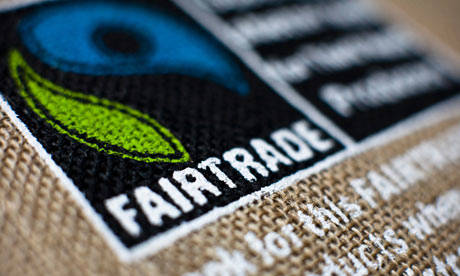 (September 1, 2015)
(September 1, 2015)
What is behind Fairtrade certification and how does it impact producers, cooperatives and consumers? To answer these questions, NCBA CLUSA hosted representatives from Fairtrade America, Equal Exchange and Guatemala-based FECCEG Coffee Cooperative last week for a webinar on how Fairtrade certification benefits smallholder farmers and cooperatives, builds a responsible food supply chain, and guides consumer buying decisions.
Moderated by NCBA CLUSA Senior Program Manager Emily Varga, the webinar also explored how consumer perception of fair trade practices is shaping the marketplace.
The August 26 webinar came on the heels of the U.S. launch of FECCEG Coffee Cooperative’s Kishé brand, a Fairtrade-certified specialty coffee grown by smallholder farmers in the highlands of Guatemala.
Nidia Gómez, commercial manager for FECCEG and a webinar panelist, said consumers who buy Kishé coffee and similar products are “not just supporting a vague idea—they’re directly supporting smallholder farmer independence.”
Unlike the traditional trade system that favors the most powerful—often at the expense of the farmer—the Fairtrade model sees producers as equal participants in trade and is designed to encourage smallholder farmers to work together in cooperatives, leverage their selling power and earn sustainable livelihoods, said webinar panelist Tia Loftsgard.
As the director of Business Development for Fairtrade America, Loftsgard’s role is to introduce U.S. companies to small producers and educate American retailers and consumers about the direct impact their decision to support Fairtrade products has on farmers.
These efforts, coupled with the pioneering efforts of NCBA CLUSA member Equal Exchange, go far to provide clarity on which companies are truly doing “good and meaningful work,” as opposed to “green-washing” their image, said Carly Kadlec, a green coffee buyer for Equal Exchange.
Founded in 1986, Equal Exchange predates certification systems. The worker co-op was integral to “developing the idea of fair trade and using the mechanisms of trade to create a more just and democratic world,” Kadlec said.
Since then, demand for ethically-produced goods among consumers has steadily increased, Loftsgard said, In fact, a recent Neilson study found that products with sustainability claims on the packaging—such as the Fairtrade mark—are growing at twice the rate of generic products. And when companies actively market the impact ethical trade practices are having at the producer level, market growth spikes even higher, she said.
“Change doesn’t happen with everything all at once, but coffee is a great entry point to becoming a more conscious consumer. Fairtrade certification makes it easy to figure out which companies are doing awesome, sustainable work and really impacting the entire supply chain,” she said.


